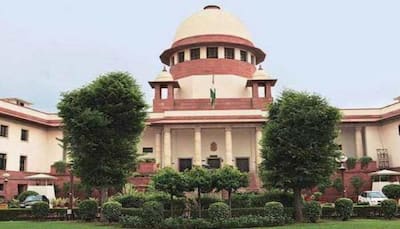New Delhi: The Supreme Court today heard the petitions, challenging the recently enacted Waqf Amendment Act. It sought to know from senior lawyers representing different petitioners impact (if any) of the new legislation on religious freedom and control of Muslims over endowed property.
As the hearing began, Senior Advocate Kapil Sibal led the charge. He said waqf is not a secular creation. It is a property dedicated by Muslims to God. As earlier, he strongly opposed the law’s new provision of inclusion of non-Muslims in waqf bodies.
He told the bench that the new Central Waqf Council can now have a Muslim minority. He backed his statement with the fact that the council’s 22-member body will now have 10 Muslims, the minority affairs minister and others who include a bureaucrat, eminent personalities and jurists. As a result, according to him, the government has taken away Muslims’ control on the donated properties.
Referring to Hindu and Sikh institutions as examples, Sibal told the top court, “Every religious endowment, not a single person is a Muslim or non-Hindu.”
Chief Justice BR Gavai, at that point, asked Sibal, “What about Bodh Gaya? All are Hindus.”
“I knew you will ask this,” responded Sibal and explained that some worship sites are shared between Hindus and Buddhists. “These are mosques. This is not secular. Creation of Waqf is itself not secular. It is a Muslim property dedicated to God,” he said.
Representing a petitioner, Senior Advocate Abhishek Manu Singhvi stepped in and said the new law forces petitioners into a never-ending process just to register a waqf. “This is just to infuse fear. Endowments exist in every religion. Which other endowment demands proof that you have followed the religion for five years?” he asked.
He reiterated the much heard argument that once a dispute is raised, the property can lose its waqf status. He called the provision “unfair” and “damaging”.
Senior Advocate Rajeev Dhawan told the court that religion is being redefined for the first time in Indian law. “We are a secular nation. One of my clients is a Sikh. He says he wants to contribute to waqf and believes his property should not be taken. This issue strikes at the heart of secularism,” he said.
Senior Advocate Huzefa Ahmadi wondered as to how authorities would check if someone is a practicing Muslim under the law’s requirements. “Can someone ask me: do you pray five times a day? Or if I drink? Is that how it will be judged?” he asked.
The hearing will continue tomorrow.
Chief Justice Gavai reminded the court earlier in the day that Parliament-approved laws are presumed constitutional and that courts cannot strike them down without a glaring violation of Constitution.
Passed last month, the Waqf Amendment Act triggered widespread protests. Muslim organisations claim the law is an attack on minority rights and accuse the government of trying to take over waqf properties.
However, the government argues that the changes will improve how waqf boards work. It says the amendments will make the system more efficient, inclusive and transparent.
Stay informed on all the , real-time updates, and follow all the important headlines in and on Zee News.








